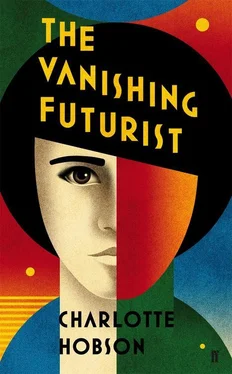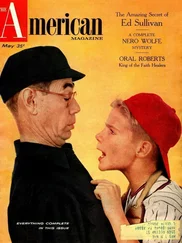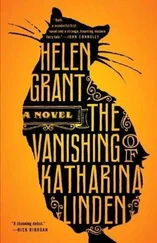One hot Friday in late August I walked from the school to the Hotel National at the bottom of Tverskaya. The streets were dusty and quiet. A young guard, barely seventeen, slouched at the main door of the National, drawing pictures in the dust with the end of his bayonet. I fumbled in my pocket for a permit and held it up to show him.
‘I’ve come for a meeting with Comrade Pelyagin.’
‘Huh,’ grunted the guard, jabbing his bayonet in my direction, making me jump. He laughed, pleased with himself, and gestured towards the ruff of other permits at the bottom of the blade. ‘Stick it on with the others. Don’t cut your little white hands, will you?’
‘Nothing white about my hands,’ I retorted sharply, sliding on the scrap of paper.
The hotel lobby smelled of makhorka – cheap tobacco – and stale alcohol; the fleshy, heroic marble figures holding up the ceiling and the remnants of the marble floor contrasted bizarrely with its new role. I climbed the grand art-nouveau stairs to the office of Emil Pelyagin, a Party official who, so the director at the language school had told me, wanted private English lessons. He was part of the Department of Industry that continued to operate from the National after other departments moved over to the Kremlin.
‘Enter!’
Pelyagin did not look up as he said this and my first sight of him was of a round, startlingly white bald patch surrounded by black brilliantined hair. He was peering closely at a file in the centre of his desk, while on either side of him stood a tower of other books and papers. A poster hung on the wall behind him: ‘Exterminate the idler and the filcher!’, with a worker smiling unpleasantly as he stamped on a runtish wrong-doer.
‘Ah, Comrade Freely, very good. If you wouldn’t just mind waiting while I finish a small piece of business off?’
I sat in the corner of his office while he called in his secretary. ‘Bring me those papers, comrade, and don’t muddle them up as you did yesterday.’
His secretary, a tall, serious girl who looked somehow familiar, did as she was told. I waited for almost half an hour while Pelyagin worked through these papers, speaking petulantly to the girl now and again. I may have been wrong, but I got the impression that this behaviour was partly for my benefit.
At last he waved the secretary out of the room and stood up. He was barely any taller on his feet than sitting down and as slight as a twelve-year-old, in a dark suit with a celluloid collar. I stood, and sat down again quickly, embarrassed by my extra foot of height. ‘So, you are the English teacher,’ he said, very dignified. ‘Are you trained?’
‘Yes, comrade.’
‘How quickly can you teach me, then?’
‘Well, it depends how much you know already, how fast you pick it up…’
Self-importantly, he began to declaim: ‘Daisy, Daisy, give me your answer do—’ He managed to give it the flavour of a report on production levels. ‘Brazil, where the nuts come from.’
‘Very good! Where did you learn your English, as a matter of interest?’
He blushed. ‘An acquaintance of mine had a gramophone record which we enjoyed listening to, as children… Now, comrade, get started. We must not waste time!’
Apart from his snatches of music-hall songs, it turned out that he knew little more than the alphabet. I learnt later that he had taken up English in response to a directive issued by the head of his department, one of a flurry of orders that were only fleetingly complied with by most government officials. Only Pelyagin, with his dogged determination to finish any job once started, plodded on with his lessons.
On that first day, the room filled with a rich smell of beef stew, a waft from the Party members’ evening meal bubbling in the canteen, which must have been quite near Pelyagin’s office. It came upon me suddenly, as I was going over the present tense, and caused me to lose the thread of what I was saying.
‘Yes, where was I? You are, we are…’
Pelyagin had the decency to look embarrassed, and at the end of the lesson, as he paid me in large sheets of uncut Kerenkas (the old currency that had officially been banned), he said rather tentatively, ‘Lenin himself has stated that it is essential for key Party workers to receive fuller rations, in order that they may carry out their Revolutionary duties effectively.’
‘Yes, indeed,’ I murmured, not catching his eye. A sliver of humanity, just the smallest glimpse, is enough, after all, to prove that it is present.
‘I think you are a Party member yourself?’ Pelyagin went on.
‘No, not a member, but I consider myself a loyal supporter of the Revolution.’
‘Yes – I’ve heard about your Institution, and Slavkin, is that his name?’ He stood up to dismiss me. ‘Perhaps you will tell me about it in our next lesson.’
I hurried straight from the National to meet Pasha at the Commissariat of Enlightenment, where he was working in the Department of Museums, thanks, really, to his father’s reputation as a collector. Pasha and I had been appointed to the commune’s ‘shopping triumvirate’; we’d arranged to visit Smolensk market together that evening.
All day I had been aware of this task ahead of me, a knot of apprehension in my stomach. The markets were periodically closed down by the Soviet, in an attempt to control all the food distribution in the capital – and ultimately to abolish money altogether – but as most of Moscow’s citizens received either a ration that would have killed them off within a couple of months, or nothing at all, we were forced onto the black market.
The traders swirled and eddied, vanishing from Kuznetsky Bridge only to pop up in the Sukharevka market, regrouping in the suburbs and then creeping, street by street, back to the centre. Each time the Red Guards knocked them back more viciously, confiscating their goods, beating and arresting them. It was a frequent sight; the rumour flitted around the stalls – ‘They’re coming! The dogs are coming!’ In moments the goods would disappear, people would scatter, and the one woman who did not pack away her bread rolls fast enough would be knocked to the ground and her goods gobbled by the guardsmen… The pavements around were often stained with blood, but even that didn’t stop the traders.
That day there was an old woman selling bowls of steaming shchi – cabbage soup – outside the entrance. A few men were spooning it in hurriedly, bowl only inches from mouth, and I found myself staring at them, my mouth watering. They must have had tongues of leather to eat it so hot.
‘Come on, Gerty,’ Pasha urged me. ‘We don’t want to hang around.’
‘Hey, that’s my spoon, you thieving yid!’ yelled the trader at one of her customers, who was moving a little too far from her patch.
Pasha and I bought dried fish and rusks, millet and barley, and from a tall, well-built woman, even a couple of pounds of butter – half melted, so I bargained her down a little.
‘Take it, and good health to you,’ said the woman cheerfully. ‘The devil of a life this is anyway. I’ll leave for home now, and you better hurry too; I’ve got a feeling those Red bastards will be along soon.’
‘Why’s that?’ I asked.
She lowered her voice. ‘Old crooked legs over there is packing up and leaving, and he’s…’ She knocked her fist quietly on the palm of her other hand. I understood her – he was a stukach , an informer, who knock-knock-knocked on the police door.
‘I’m one of the sort who can see that kind of thing,’ the woman murmured. ‘Always have been able to. If you like I’ll tell your fortune, and I won’t charge too much either.’
‘That’s all superstition,’ said Pasha. ‘You must forget such nonsense now.’
Читать дальше





![Майкл Муркок - Спящая волшебница / The Sleeping Sorceress [= Участь Белого Волка, Рыцарь Хаоса, The Vanishing Tower]](/books/327544/majkl-murkok-spyachaya-volshebnica-the-sleeping-sorc-thumb.webp)






